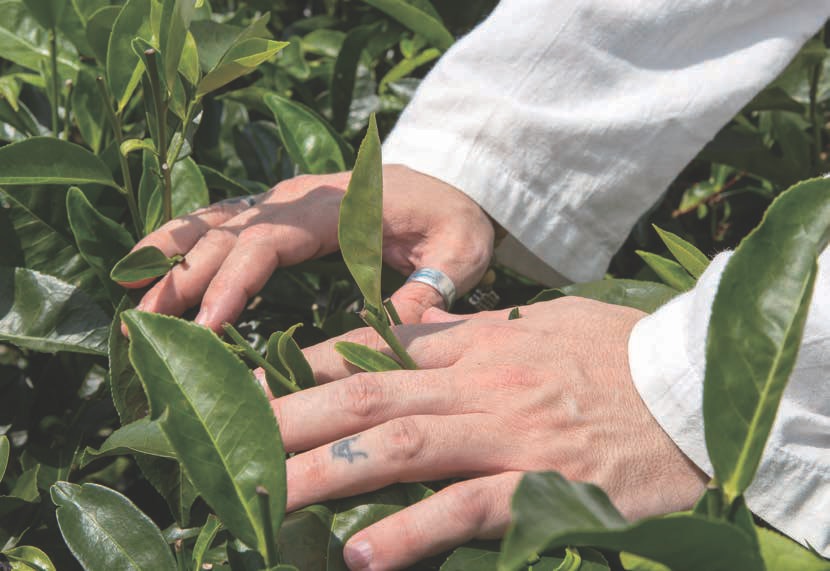
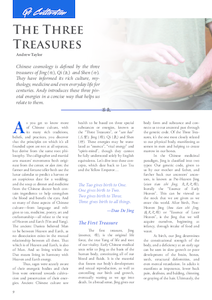 |
|
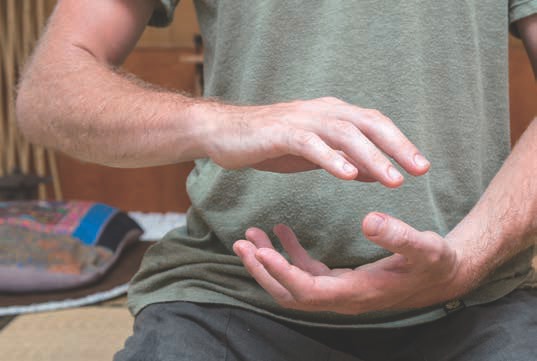
As you get to know more of Chinese culture, with its many rich traditions, beliefs, and practices, you discover that the principles on which it's all founded upon are not at all separate, but derive from the same root philosophy. The calligrapher and martial arts masters' movements both originate from the center, or dan tien; the farmer and fortune teller both use the lunar calendar to predict a harvest or an auspicious date for a wedding; and the soup at dinner and medicine from the Chinese doctor both contain ingredients to help strengthen the blood and benefit the eyes. And so many of these aspects of Chinese culture - from language and religion to tea, medicine, poetry, art and craftsmanship - all relate to the way of Heaven and Earth (Yin and Yang). The ancient Daoists believed Man to be between Heaven and Earth, as no dissociation exists in the mutual relationship between all three. That which is of Heaven and Earth, is also of Man. And so living within the Dao means living in harmony with Heaven and Earth energy.
Thus, sages were acutely aware of their energetic bodies and their lives were oriented towards cultivation and preservation of their energies. Ancient Chinese culture saw health to be based on three special substances or energies, known as the "Three Treasures", or "san bao" (三寶); Jing (精), Qi (氣) and Shen (神). These energies may be translated as "essence", "vital energy" and "spirit-mind", though they cannot be fully understood solely by English equivalents. Let's dive into these concepts, which date back to Lao Tzu and the Yellow Emperor...
Tao gives birth to One.
One gives birth to Two.
Two gives birth to Three.
Three gives birth to all things.
The first treasure, Jing (essence, 精), is the original life force, the true Yang of life and root of our vitality. Early Chinese medical texts refer to Jing as the basis of the human body, constituting all of our blood and fluids. It is the material that fosters our body's development and sexual reproduction, as well as controlling our birth and growth, eventually waning as we age into death. In a broad sense, Jing gives our body form and substance and connects us to our ancestral past through the genetic code. Of the Three Treasures, it's the one most closely related to our physical body, manifesting as semen in men and helping to create marrow in our bones.
In the Chinese medicinal paradigm, Jing is classified into two types: Our genetic code, given to us by our mother and father, and further back our ancestors' ancestors, is known as Pre-Heaven Jing (xian tian zhi Jing, 先天之精), literally the "Essence of Early Heaven". This can be viewed as the stock that we are given as we enter this world. After birth, PostHeaven Jing (hou tian zhi Jing, 後天之精) or "Essence of Later Heaven", is the Jing that we will acquire ourselves, beginning at infancy, through intake of food and water.
At birth, our Jing determines the constitutional strength of the body, and a deficiency at an early age can be seen in slow growth or poor development of the brain, bones, teeth, structural deformities, and even mental retardation. In adults it manifests as impotence, lower back pain, deafness, and balding, thinning or graying of the hair. Ultimately, the complete loss of Jing results in our death. In Daoist traditions, conservation of Jing was practiced for health and longevity, and their lifestyle and daily practices were oriented as such. With its relationship to sexual function and the kidneys, reducing the frequency of sexual activities, or complete celibacy (especially in winter), was practiced as one such conservation technique. In modern times, Jing cultivation is often just a lifestyle that promotes well-being - one that includes adequate rest, a healthy diet in accordance with the seasons, meditation, yoga or Qigong. Chinese herbs also play an integral part in nourishing Jing. The most common Jing herbs are cordyceps, the herb known as "he shou wu (何首烏)" and goji berries. Exhaustion of Jing, or "Jing depletion" as it is often called, is caused by stress, overwork, alcohol or drug intake, or excessive sexual activity.
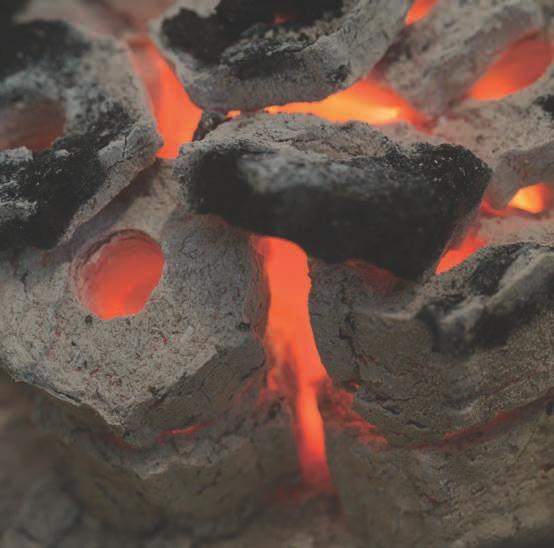
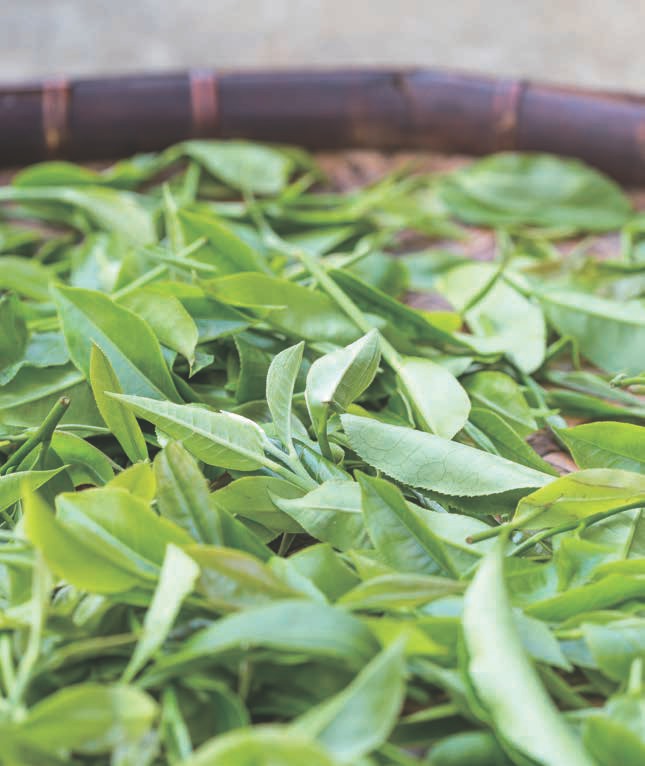
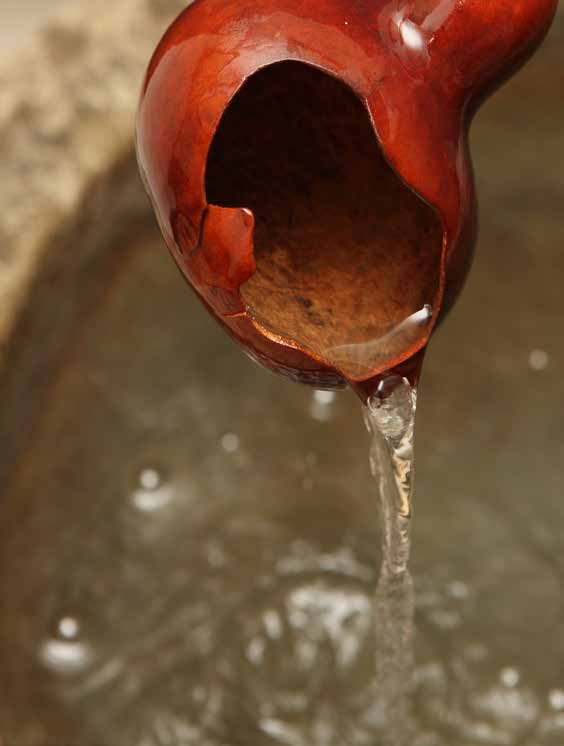
Of the Three Treasures, Qi (氣), or "vital energy" is the one that is most familiar in the Western world. It is known as "prana" in Hindu culture. Qi is the invisible life force within everything and behind all transformative processes of life. If Jing is the basis for the human body, Qi is the basis for the whole cosmos.
All movement and transformation within the Universe arises from Qi. It has many forms and functions and human life depends on its existence. We are continuously breathing Qi, eating Qi, and interacting with Qi in every moment of our lives. Our state of health depends on the condition of our Qi. Any lack or stagnation of it will cause imbalances in our body, creating dysfunction and dis-ease in the organ systems. If Qi is depleted, we must nourish it and if there is too much, it must be moved. The generation of Qi occurs through the transformation of the air we breathe and the food we eat.
Within our bodies, Qi has five basic functions: activating, warming, protecting, transforming and containing, all of which relate to one another. Our Qi flows within our body through the meridian or channel system nearer to the surface of the body. This channel system, accessed through the exterior portion of our body, connects to our internal organ systems at the deeper level. (This explains how acupuncture affects bodily functions through insertion of needles into the body at particular points on the channel system.)
Our posture and body alignment influence the flow of Qi within the body. Fundamental to Taiji, Qigong and yoga practice is maintaining correct posture, which enables energetic movement. In this way, we can also examine our own alignment in life to that which surrounds us. Work, family, relationships, aspirations, spirituality, all function and interact through Qi. Which aspects of our lives need nourishment? Which need to break through stagnation?
Like the differing energies of Yin and Yang, Qi can be great and expansive or condensed and subtle. The energetic difference is apparent when drinking an aged puerh as opposed to a fresh oolong, but do you notice the difference when moving the plant on your chaxi slightly closer to the edge? Or the shift in your energy when you change from wearing a blue shirt into a red one? Can you taste the difference of the Qi in food when eating organic as opposed to non-organic? Yes, Qi is everywhere!One of the best ways to support Qi in the body is through diet and exercise. The Daoist concept of "Yang Sheng, (養生)" or "nourish life", which means the cultivation and nurturing of our mind, body and spirit, is prevalent in Chinese society. This can be seen throughout all aspects of everyday life here in Taiwan: at restaurants that offer healthy dishes cooked with Chinese herbs or early mornings in the park as the elderly move their Qi by doing Taiji, Qigong or other traditional breath/movement exercises. Another example of Yang Sheng occurs during the month after a woman gives birth. Childbirth results in an extreme loss of Qi and blood for a woman, so this time is of critical importance to replenish what was lost. The mother will rest for a month (called "zuo yue zi" or "sitting the month"), cared for by her own mother at home or at a special center by a caregiver, eating a traditional diet to nourish Qi and blood. Of course, herbs will be part of this regimen. The most commonly used Chinese herbs that strengthen the Qi to improve digestive, respiratory, immune function and help build blood include ginseng, astragalus root, schizandra and rhodiola.
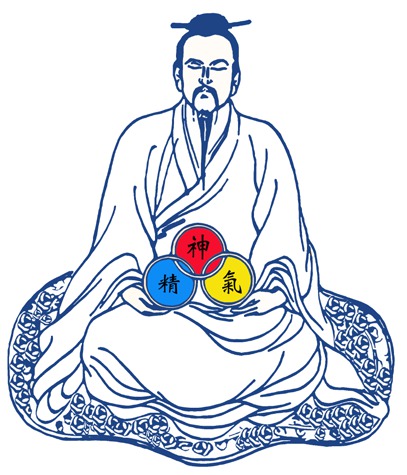
Our first two Treasures join together within the body, developing into the third Treasure, Shen, (神) known as "spirit-mind". This is the energy behind our mental, creative and spiritual being, our consciousness and awareness, and that which connects us to the Divine. If, as the Daoists say, the meeting point of Heaven and Earth is Man, then Earth energy is the source of Jing and Qi and Heaven energy is the source of our Shen. It resides in the heart and can be seen through the eyes - as the saying goes, "The eyes are the windows to the soul." Unlike Jing and Qi, Shen does not get passed on from our ancestors. The Shen is developed ourselves, in our daily lives, cultivated through meditation, prayer, music, dance, tea, art, writing, or any creative activity that aligns us with a higher state of consciousness.
The state of our Shen is often determined by how we choose to orientate ourselves to the world. The way we relate to other people, or better yet, the way we relate to everything in this world creates a shift in our Shen. All thought, intention and interaction influences Shen, our spirit. Are you able to regard the mundane as sacred? Are you able to see the light when mired in darkness? For us Chajin, Tea acts as a medium to create space for a calm, peaceful spirit. However, that space is not limited to our tea room, and the equanimity felt from drinking Tea does not leave us after the pot has been cleaned. We continue to brew Tea throughout our day in regards to everything that we do, cultivating omnipresent, mindful and harmonious Shen.
How does Shen manifest in our physical body and how can we brighten it? Within Chinese Medicine, our Shen is associated with the heart organ. Anxiety, restlessness, depression and heart palpitations can all be attributed to a clouded or disquieted Shen. To brighten the spirit, any activity that opens, moves, soothes and quiets the Heart is recommended. Finding your own Dao and living through that will certainly brighten Shen. In Daoism, reishi mushrooms are highly regarded as a superior Shen tonic for calming the heart and quieting the mind for meditation. And of course, we need look no further than the tea table to find the greatest Shen tonic of all!
With the wisdom passed down from the ancient wise ones, we are able to facilitate our own understanding and connection to Heaven and Earth. We are at the meeting point, and have access to the method and medicine to cultivate our own Three Treasures: Jing, Qi and Shen. Now it is up to you to live in harmony with Great Nature, nurture your own vitality and align your spirit with the Dao!
